Purpose is not a luxury. It’s fundamental to health, to healing, to happiness, and to fulfillment. This is important in all aspects of life, especially when you grow older. To purposefully age is to have a clear vision in your mind of how you want to age. Don’t live a default life, live a good life. Join your host Dr. Diane Hamilton and her guest Richard Leider as they discuss his new book and the value of purposeful aging. Richard is the founder of Inventure. He is also a leadership coach and a best-selling author. Today, Richard talks to Diane about his new book, Who Do You Want to Be When You Grow Old? Learn how you can add purpose to your life with Richard’s purpose formula. Discover what makes a good life and much more today.
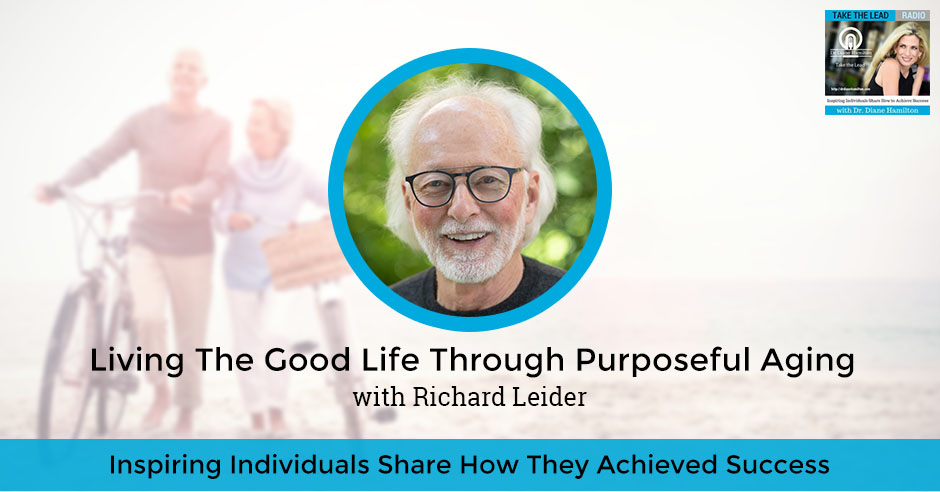
I’m glad you joined us because we have Richard Leider. He is the Founder of Inventure. He’s also a well-known author and leadership expert. He’s done a lot of work in the area of having a purposeful life. I’m excited about his new book, Who Do You Want to Be When You Grow Old?.
—
Watch the episode here
Listen to the podcast here
Living The Good Life Through Purposeful Aging With Richard Leider
I am here with Richard Leider, who is the Founder of Inventure. You’ve probably seen many of his best-selling books. He had his books translated into twenty languages. He’s versed in many aspects of purpose. The one he’s written, which I’m excited to talk to him about, is Who Do You Want to Be When You Grow Old? That’s an interesting topic. Welcome, Richard.
Thank you. I’ve been looking forward to this conversation.
I have, too. I know you’ve been named to many amazing lists. Forbes ranked you as one of the top five most respected coaches. Having worked with Forbes and spoken with them, that’s an impressive thing to be noticed for. You’ve done some great stuff. I want you to be able to share some of your backstories of what led you to this level of success, if you wouldn’t mind.
I wouldn’t consider myself but maybe the egotistical is a pioneer in The Purpose Movement. A purpose is both age agnostic and industry agnostic. A purpose is not just for certain ages, industries or concepts. It’s in healthcare, well-being, aging, and leadership. I’ve worked in all of these different categories over the years.
One thing I would say at the outset here is that purpose is not a luxury. What we learned is that both science and faith agree that purpose is not a luxury. It is fundamental to health, healing, happiness, fulfillment, and ultimately even to longevity. You could add leadership and other things into that. Over the years, every new idea goes through stages and one is ridicule. Way back when there was a purpose to get a life.
The second stage is violent opposition. People push back on it and say, “This is not something.” The third stage is self-evident. Ridicule, opposition, and self-evident. The science of purpose is self-evident in ways that my phone is ringing off the hook because the purpose is central to many things. The pandemic has certainly put the lens on it.
It’s important because it ties in so well to the books I’ve written on perception and mostly curiosity. I love the description of your book. It said, “Grow old on purpose. This book invites readers to navigate a purposeful path from adulthood to elderhood with choice, curiosity and courage.” I love the tie-in to the research I had because I looked at the things that kept people from being curious and that fascinated me. That ties in well with what you studied. What made you pick the word curiosity?

Purposeful Aging: The purpose formula is G + P + V = C. This means gifts plus passions plus values equals calling. Where calling is another vocational word for purpose.
It’s because without curiosity about self and others, one doesn’t have a purpose. Purpose is a verb. It is something we act on. It’s not something we have as a concept. There’s a big distinction between two things here and one is having a purpose and living purposefully. The second is Purpose and purpose. Often, I get a huge sigh of relief from the audience when I say, “I’m here to talk about purpose in a little P.”
Often, people say, “Do I have to quit my day job? Do I have to go to work in a social justice organization to have a purpose?” I said, “No. Purpose is a mindset and a practice that you bring to work in life every day.” I go into that, while we’re talking in certain ways here. The point is that with this sigh of relief, people understand that purpose is not a luxury. It’s fundamental. It’s universal. I’ve had the privilege of speaking and being involved in organizations across the globe. It is not just for the wealthy or the well-educated. Some of the most purposeful people I know don’t have two nickels to rub together.
What does a purposeful person look like?
A purposeful person is somebody who has a clear sense. I’ll give it in two ways. The shorthand is they wake up every day with an answer to the question why. “Why am I here? What am I going to do to make a difference in somebody else’s life today?” There’s the why question. The bigger, deeper dive into it is that the purpose formula, which I’ve worked on for years, is G + P + V = C, Gifts plus Passions plus Values equal Calling. Calling is another vocational word for purpose.
If you get up during the day and you’re using your most enjoyed gifts on things that you feel purposeful or curious about in environments that fit your values and your voice, there’s a pretty good chance that you’re going to be living and/or working purposely. The key is self-awareness, which leads to self-development, which leads to self-gift to give away what you have. I’m not sure if that’s it exactly. It’s not a silver bullet to do this.
I can give your readers a default purpose. I did a PBS Special a few years ago and it was shown in 400 and some cities across the country. I went out and did live events in 6 or 7 of those cities, etc. The default purpose, which is like, “This is too big. It’s a luxury.” Let me give you the default purpose and practice. The default purpose is two words, grow and give. If you write that on a post-it, you put that on your mirror, you wake up tomorrow morning and say, “How am I going to grow and give today?” At the end of the day, before you go to sleep at night, you say, “How did I grow and give today?” You’ll be living purposefully. You’ll be with an intention to make a difference in the lives of others.
At the end of a week, you’ll have a felt sense of what purpose is about and what it means. When I did the PBS Special, I can’t tell you how many people mentioned that, did that and would write me and say, “That’s purpose with a P. It’s not necessarily easy but it’s not hard.” A purpose is different from a goal. A purpose is an intention of how you want your life to be and what you want your life to be about. It’s a mindset but also a practice. Purpose is a verb. It’s something we do. It’s not something we think about.
It brings up a lot of the research that I found when I was looking at curiosity and the way we feel better when we’re curious and we explore, we get dopamine. My dissertation was on emotional intelligence and its impact on performance. The self-awareness thing was huge. When Daniel Goleman was on the show, I had a chance to chat with him about the importance of that.
[bctt tweet=”Purpose is not a luxury. It’s fundamental to health, to healing, to happiness, and to fulfillment.” username=””]To me, a lot of what makes people more engaged and successful at work ties into that empathy part of emotional intelligence that ability that I can find out more about somebody else and put myself in their shoes. That’s why I studied perception as well because these are such important things. Gallup is losing $550 billion a year on engagement. You must deal with engagement quite a bit, I would imagine.
I do. I want to hitchhike on the Goleman thing. When I got out of graduate school in Counseling Psychology, I spent a week studying with Viktor Frankl in San Diego, California. I’d studied him in school. All of a sudden, they’re thinking about creating this institute in San Diego. I had no money or reason to be there. It transformed my life.
Dan Goleman wrote a ten-page forward to Victor Frankl’s book that came out in 2019 called Yes to Life: In Spite of Everything. That’s the message of purpose, say yes to life in spite of everything. I spent a week with Viktor Frankl, and I could hear a pin drop through the week in the whole room. I was a young post-grad student trying to figure out what to do with my life, and it changed my life forever because it got me on this trajectory that we’re talking about right now. Altruism, emotional intelligence, and curiosity are the core elements of a purposeful life.
It comes up a lot with the things that I talk to Daniel Goleman about as well as Francesca Gino, who was on the show from Harvard. A lot of this stuff is hard to quantify sometimes. You were saying how to do it a little bit, like, “How did I do it? How did I grow today? How did I give today?” A lot of people want to be able to quantify some things that are challenging to do that. That’s a good way to start.
No matter who’s been on this show, those are some amazing people. Dr. Albert Bandura, who died, was on the show. I’ve had many amazing people who have found ways to change the world. When you tell them that you got to have a purpose, that’s the big P, they’re thinking that they have to go out and do Habitat for Humanity.
No, you don’t.
Let’s do baby steps. What are you hoping for people to get from your book? Your book is What Do You Want to Be When You Grow Old? You are making a case for a new elderhood and the value of purposeful aging. Is this meant for old people like me and you because we’re older?

Purposeful Aging: A purposeful person is somebody who has a clear sense. That person wakes up every day with an answer to the question, “Why?”
As I said, purpose is age agnostic. Spoiler alert, you’re getting older. Aging isn’t optional but growing is. Get old or grow old, you choose. There’s a need for a new narrative. We’ve added three decades to life in the last period of time. In the early 1900s, life expectancy was in the 40s and now it’s in the 80s. The fastest-growing cohort is 85 and over. Yet, we grow up twice. We outgrow adulthood into elderhood. Before that, we go from youth to adulthood. We then grow up again as we’re living longer lives.
This book and this work are about a new narrative for the purpose of aging. The last narrative like this was passages. That came out years ago, and it was on the New York Times Bestseller list for a long time. It was focused on midlife but now we’ve added these three decades to life. Why we wrote this is we believe that aging is not a disease. It’s a design challenge. How do we redesign?
There are going to be challenges like the pandemic. With life comes challenges. As Viktor Frankl said, “Human freedom is a choice.” How you choose to deal with those adversities in life is what Man’s Search for Meaning was all about. That’s what this book is about. It’s a short book and beautifully designed but it has great stories from some great exemplars of purposeful aging in it.
I’ll circle back and say that purpose is fundamental. Purpose is a verb. There’s the big P verb and there’s the small P verb. My whole breakthrough, my contribution to this field is unlocking the power of purpose. I used to be all about finding or discovering purpose, which was too big for people and too much of a big P. When that linguistic distinction came to me, it’s about bringing who you are to nowadays moments. That is a big sigh of relief for a lot of people.
A lot of people feel like they’re existing right now instead of living. It’s a tough time for many people. Having exemplars is such a great idea in your book. Any of them you want to share, your inspiring stories that you included?
One of them is called Will I Earn A Passing Grade In life? That’s the chapter. The exemplar in that chapter is a guy named Ed Rapp. Ed was 1 of 3 presidents of Caterpillar, about to be named CEO of Caterpillar worldwide, Earthmoving. He traveled a lot. He was out for a run a couple of times with his son and noticed his foot was dragging. He got diagnosed at Mayo Clinic with ALS.
At age 57, when he’s at the pinnacle of his career and about to become the CEO of one of the most coveted brands in the globe, he retires. He goes home to Raleigh, North Carolina, and tries to figure out what to do next. I know the story intimately because I was coaching him, and I was working with him on leadership programs and doing this and that. His story is now public.
He’s in his 6th year of a 5 to 7-year death sentence with ALS. He’s got protocols that he does every day. What he does every day is purpose-centric. I don’t know what time he wakes up but at 8:00 AM, he has a call with somebody in the world who has been diagnosed with ALS and is terrified and wants to talk to somebody who’s got ALS and is doing something about it. Not that it’s going to be cured forever but it’s going to be something that’s going to make their quality of life better.
[bctt tweet=”Without curiosity about self and others, one doesn’t have a purpose.” username=””]He says to me, “This is a good life. I don’t want to die of ALS but this is my sentence. I get up every day and I feel good about being able to give somebody else not just a kind word but some protocols about how to deal with this. Every single day, I do this.” I could go on about that. At the end of the story, he said, “I want to earn a passing grade in life.” He is earning a passing grade in life. Are we? What would we do? Do we need a death sentence to do that? Can we do it out of choice? That’s one of the paths of purposeful aging questions.
That’s an interesting question. I’ve had a lot of people on the show who have become blind or something has happened. Erik Weihenmayer and others have been on the show. A lot of them have been on and they’ve lost something like that. My father was born legally blind, so he never lost it. When you lose something, that gives you a whole different perspective on everything, somebody who can give back like that is important. As you were saying, he does this every day. Is there something you do every day for this purpose?
I have what I call the two-minute purpose practice. It’s like the post-it I mentioned. If you get up in the morning, there are three steps. Step one is to pause, meaning don’t go for your phone and see what came in over the night, which is tough. Step two is to take three deep breaths, meaning center yourself in nowadays life. Step three is to make an intention, a commitment to make a difference in one person’s life now.
There are 1,440 purpose moments in the day. If you take sleep out, it would be less. How can you make a difference in one person’s life now? A purpose is not only a mindset about what you want your life to be about, but it’s a verb, it’s an action. This action is going to be to phone this person, give this person a kind word, and give this person a hug. If you go back to what I said earlier about Viktor Frankl in the concentration camp, what’s his action there? He said, “You can give someone a kind word, a crust of bread, a slurp of soup, and hope.” He said, “If you offer something to somebody else, you do better. Not that you will survive, typically or guaranteed, so to speak.”
He said that the people who had a sense of purpose beyond themselves tended to do better in the concentration camp than those that didn’t. I wasn’t there, so I can’t do a pushback on that. The fact is I did with study with Frankl. I have read everything that I can imagine about him. He has 30 honorary doctorates. His book sold 21 million copies. He died at the age of 93. The point is what is there about that people say, “If he could do it, I can do it.” Life is not in a concentration camp.
From the people I’ve seen who don’t seem too happy, they focus way too much on themselves and not on other people, don’t you think?
That is right. I do agree.

Purposeful Aging: Make a commitment to make a difference in one person’s life today. Purpose is not only a mindset about what you want your life to be about. It’s a verb. It’s an action.
They get all wrapped up like, “This hurts. I feel bad because of that.” How do you get them out of that thinking?
It’s with great difficulty. Sometimes we’re pushed by pain. Sometimes we’re pulled by a possibility. Everybody is an experiment of one. There’s no silver bullet way of getting them out of that. As Carl Jung said, “The greatest damage you can do to your kids and others is your own unlived life.” The starting point is what’s working for you and being an exemplar yourself without trying to be an exemplar but being you.
This book went into reprint before it came out. It has pre-orders from Amazon and Barnes & Noble, and people are ordering it. This is my eleventh book, the sixth book with David Shapiro. We know we’ve got a “following” of readers. The key here is it’s got to be practical for people. The chapter that has had the most uptake has been How Do I stop Living A Default Life? Many people at a certain point in their life saying, “I did this to make a living. I do this because this is where I live. My career chose me. I didn’t choose it. I was an artist and I ended up being a lawyer.” All these different stories.
At a certain point in life and a longer life, people start to question that. How do I move from living in default life to living a good life? We talked about the metaphor in the book about looking in the rearview mirror or looking in the windshield. The windshield is a lot bigger with the possibilities than the rearview mirror but we need both. We can look at where we come from and what’s worked and hasn’t worked but we also need to not be stuck with that and look at what’s the possibilities in the windshield. The book has got a lot of inspiration in stories about that.
I was a pharmaceutical rep forever. I worked for AstraZeneca. I did a lot of different things in the past. I think about some of the jobs I had that, at that time, weren’t a good match for my personality. I’m a much more paperwork person than somebody that drives and does all that kind of thing. We get ourselves in what we consider golden handcuffs. We have our kids and we want to be home for them. You get these excuses for why you stay where you’re staying.
Talking to Daniel Goleman was interesting to me because he was talking about meditation and all the things that he’s into now, and that ties into your three deep breaths and what you do to get into mindfulness. He’s into mindfulness now. It was something helpful for me to talk to him about how you can stop and think that you can’t completely calm your mind. You focus for a while. I used to think you had to shut it all out to be completely nothing in your head. He said, “That’s impossible.” We were laughing about it.
You get wrapped up in your mind and you get these ideas. It’s part of what I found with my curiosity research. It’s those assumptions that hold us back from curiosity, the things we tell ourselves. I found that there are four things. Fear, assumptions, technology, and the environment are the four things that keep people from being curious. If we can work on those things and ask ourselves some of these questions, we’ll be more engaged, innovative, we’ll be all these things that we need to be.
A lot of people are telling themselves these things or that they have these fears that their environment and the people around them have had this impact. It’s almost like with the emotional intelligence thing and the curiosity thing, those are two books that the people who need to read them aren’t going to pick off the shelf. How do you get these people to stop and go, “I’m one of those people who needs this help?”
[bctt tweet=”Purpose is different from a goal. A purpose is an intention of how you want your life to be.” username=””]You probably don’t. If they’re not interested, don’t waste your time other than to live your life. I hate to say it that way. Death is one of the doorways. This book is a short, 200-page, pass-it-on type book. It’s beautifully designed. The first chapter is the long conversation but the last chapter is the ultimate conversation. The ultimate conversation is about death and dying. One of the things that wake people up as they age is to look. It could come from being pushed by pain, some episode or incident in their life or aging is hitting a certain year. The clock is ticking, “If I’m going to do something, I’m going to do it now.”
For five years, I founded and headed AARP Life Reimagined Institute, which is on the future of aging. We did life and purpose checkups in every state in the Union over the five-year period. It’s led by peers. It’s not led by psychologists or professionals. People would come reluctantly to these because AARP sponsored them and there was a free lunch or something like that. Ninety-five percent of the people who came said, “What else have you got? This isn’t what I’m looking for. I didn’t want it to be too weird. I didn’t want it to woo-woo.” Whatever they were talking about, “If I can live longer and better, what do I do?” I said, “A part of it. Not all of it. The science is now clear.”
When I did the PBS Special on The Power of Purpose, one of the neurologists I interviewed held up a pill and he said, “Richard, do you see this pill? This pill will reduce the negative effects of Alzheimer’s. It will help with sleep apnea. It will reduce macroscopic stroke by 41% and add 7 to 10 years to your life. What do you think? Do you want to buy it?” I went, “Of course. Who wouldn’t? Is it for sale?” He said, “It’s free.” We can measure purpose in the brain.
If we do it on somebody who died and we measure their plaques and tangles in the brain after, certain people do well even though they have plaques and tangles and other people don’t do well even when they have plaques and tangles. We’re still learning about the science of that. They said, “We now know that having a purpose, which you could call attitude if you will, added not just a positive attitude but it’s an attitude for the sake of others.” With Daniel Goleman, meditation, and mindfulness, I’m involved in a lot of that like you are. Is mindfulness for the sake of what? Is it for you so you could be happy or is it for the sake of something beyond you?
When I read Stephen Hawking’s book, I kept waiting for him to talk about the horror of what he had to go through. I can’t think of anything worse than being trapped like he was. He was like, “That sucked. No big deal.” How many people live as long as he did with what he had? Not many. Your environment has a huge impact on you, the way your parents and siblings act. When you mentioned the woo-woo thing, a lot of people are worried if they hear the word purpose. They hear certain things and it’s going to be woo-woo. You don’t come across at all as a woo-woo kind of guy.
That’s why I said I get this big sigh when I say in front of a live audience or Zoom audience Purpose and purpose. There’s this like, “Thank God, I don’t have to quit my job or I don’t have to go to work in a social justice organization. I can be me and do this.” I still need a reason to get up beyond my own self-interest.
Every new idea goes through three stages, as Schopenhauer taught us, the German philosopher. The first is ridicule. I’ve been a pioneer in The Purpose Movement for over four decades. I’ve looked at it from every angle I can imagine. I created something called An Incomplete Manifesto For Purpose because I’m still a learner. That’s the incomplete part. I wrote down on one page ten points of what I believe about the purpose and where it comes from. You don’t have to agree with it but you have to figure out for yourself what you believe about your life and your legacy, etc. This is a purpose path into it. It’s not the path. It’s a path.
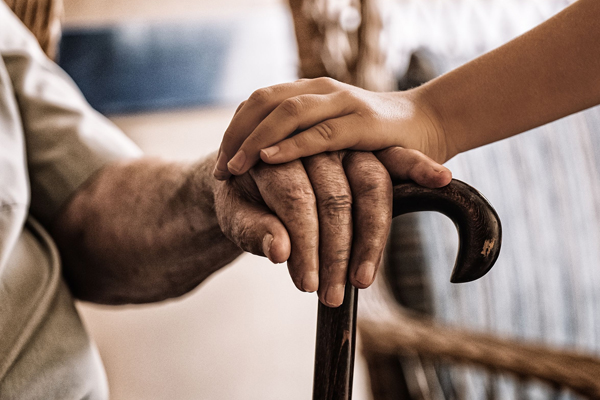
Purposeful Aging: One of the things that really wakes people up is, as they age they see the clock is ticking. If they’re going to do something, they better do it now.
The pandemic was the perfect storm when you add the facing death type of thing and you add the demographics of aging. The third thing, the biggie that we haven’t talked about but we’ve touched on is one of my books is called Work Reimagined. The opening chapter is called It’s The End of Work As We Know It. That came out a few years ago. That was pre-pandemic. It is the end of the work as we know it. It’s not just technology versus live versus where you’re going to do work. The percentages that are coming out of people right now who are either quitting or wanting to quit their jobs, who would ever think that this would be astronomical?
It’s a crazy time. You brought up your other books. In your Repacking Your Bags book, you defined the good life as living the place you belong. I’m thinking about that as you’re saying this, people are questioning where they belong. You can’t quit and live. You need money. How do you determine where you belong?
Repacking Your Bags sold over 1 million copies in 21 languages over three editions. One of the things that’s in there is the good life inventory. You mentioned that you’re a positive student and that is living a good life. My philosophy professor and colleague who wrote the book with me say that it’s living in the place you love with the people you love and doing the work you love on purpose. Medicine, health, and money are the bookends of that. Where do you want to live? It’s not just about the weather. It’s about who’s living there and all the other conditions that go with that.
I did an interview in Boston with something called The Real Estate Cafe. They have found that 46% of the people who have been working at home don’t want to work where they live. They want to move. If you look at different places, you can’t find a house. My co-author of another book I wrote called Life Reimagined, Allen Webber, who used to be the editor of the Harvard Business Review and created Fast Company Magazine, he’s now the mayor of Santa Fe, New Mexico. He’s my co-author, colleague, and friend. He said, “You can’t find a house here. There are so many people who want to live here. Now that they can do it virtually or with Zoom, they can live here. In the past, they would see it as a vacation spot. Now, they’re wanting to move here.”
We’re getting a lot of that here in Arizona. There’s a lot of Zoom fatigue. A lot of companies are taking advantage of people having non-stop Zoom meetings and then the work has got to be after the eight-hour day. Do you think that’s part of the burnout?
I think so. It depends on the profession. I’m doing a keynote address live in Chicago at the McCormick Place for several thousand people from a conference called OR. These are the people who run the operating rooms in clinics, hospitals, etc., all across the country. Why would someone like me at a technical conference like that be the opening keynote? It’s because they’re overwhelmed by burnout. There’s such a nurse shortage right now, but there was going to be a nurse shortage because of the aging population even if there wasn’t a pandemic. Now it’s exacerbated by the pandemic.
It’s a crazy time. My sister is a nurse recruiter, and my husband is a physician. I get to see the whole medical field. I knew you would be a perfect keynote for that group. That’s exactly what they need right now.
They’re going to do it live. For the first time, they’re going to do a follow-up, “Once you do your live conference, Richard, we’re going to follow up a month later with Q&A and coaching from you.” What I’m finding when I do those things is that 90% of the people who are on the conference or the webinar show up for the coaching because they want help and practices.
[bctt tweet=”Aging is not a disease. It’s a design challenge.” username=””]What does that coaching look like with you? Is it a one-time or a three-month? How does that work?
We’re talking about hundreds of people saying, “You can’t deep dive. You need to pick some generic questions.” What you do is you give people an exercise to do. Don’t show up for the coaching unless you’ve done your homework. They do a micro repeat of the message and then they’ll say, “What’s on your mind? What is it that you’re stuck with? What is it that you’ve learned?” Ninety percent of the people who are at the conference or on the thing show up. It’s amazing. It used to be 10% or something like that.
Are you saying since COVID, it’s changed that much?
I didn’t use to do the 1, 2. I’d go out, do a talk, and that’d be it. I then move on to someplace else. Now, people are going, “I want to talk to this guy.”
That’s a good idea. I remember doing a talk for Forbes where we did a live Facebook where I was giving the talk. This is a virtual thing. This was long before COVID many years ago. We did the deep dive question thing later. It was an unusual format. I’m seeing more of that coming back now. I could see this thing where you do a two-part thing being helpful for people. You’ve worked with some amazing companies. I was looking at the list. You did work with AARP and Habitat for Humanity. I was looking at some of them and Mayo is huge.
I still am today. It’s changed, let’s put it that way because it’s more virtual now. Whether it’s UnitedHealth Group or whether it’s this new thing that you should connect with called Whole Health Institute. Do you know them?
No. Tell me about them.

Purposeful Aging: The good life is about living in the place you love, with the people you love, doing the work you love, on purpose. So where do you want to live?
Whole Health Institute is in Bentonville, Arkansas. Figure that one out. It’s an institute and a medical school solely funded by one person and she’s the heir to the Walmart fortune. Alice Walton is a billionaire whose purpose and mission is to help the poorest of the poor as well as others to live well-being. She wants to get the well-being integrative message out. When you look at integrative medicine, the purpose is central to integrative medicine. That’s the Daniel Goleman thing we were talking about before.
I’m their Purpose Ambassador. They brought in many of the top stellar people from the Obama Health Care Administration and others as employees. I said, “Bentonville? No.” They said, “If you’re going to work with Walmart, you have to have an office here.” Not me, but someone who’s got big products. We have three airports. We have one for corporate jets, one for Walmart, and one for the public. We have art galleries and restaurants. You can’t believe it. We’re like a postage stamp in Arkansas.
I need to see that stamp.
I haven’t either but I’m about to. I did a two-hour gig with him. I’m working with them. These things are happening. Whether it’s the Gates Foundation or others that they send to me, they seem to be happening from the margins and not from the top down.
You’re saying that she’s trying to work with well-being and all that, that’s where curiosity can play a huge role. I often talk to companies. They want to talk about innovation and engagement and all that. Engagement is such a huge part of curiosity because you can feel confident to ask questions and explore the things you’d rather be doing. A lot of people are stuck and they don’t want to rock the boat, the golden handcuffs, and a lot of other things.
That’s the default life I talked about.
[bctt tweet=”The greatest damage you can do to your kids is your own unlived life.” username=””]If you can ask questions, not only does it build empathy and to have you communicate better and all of that, but people would be more aligned to their passions. No matter who’s been on the show, whether it was Daniel Goleman or Francesca Gino or anybody who’s a creativity expert, they all say that curiosity comes first. It’s the spark that ignites everything else.
Have you ever had Richard Saul Wurman on your show?
No. I’d love to, though. Are you friends with him?
No. He’s a curmudgeon, to be honest with you. He’s the founder of TED in the ‘80s. He created the ultimate technology and entertainment design dinner party. From that, those are the people he wanted. He was curious. I’m backstage with him before going on at some conference. I can’t remember what it was. This is pre-pandemic.
He said, “Richard, young man, what are you going to talk about?” I said, “I’m going to talk about purpose.” He scarfed that off. I said, “What are you going to talk about?” He said, “Curiosity. Don’t you think curiosity is what drives purpose?” I said, “Absolutely it is.” “It doesn’t stop there. It’s the curiosity for the sake of who and for what? You can be a curious narcissist. Curiosity with purpose is what I’m curious about.” We had this conversation, and that’s how TED was found. It still is to this day, ideas that spread. That’s all about curiosity.
The reason I started writing about it was because of all the curious, interesting people I’d had on the show. I started to realize that because I had written about emotional intelligence, I had done a lot with assessments. I wanted to see what kept people from being curious. I couldn’t find any assessments that told me that. They all told you that if you had a higher level, what good does that do if you have a low level? I wanted to know what stopped it. That’s what my research was. What stops it? If you can find out what’s stopping you, then you can move forward. I love TED. I love all that kind of thinking. I want to get people past the things that keep them stuck.
That formula of gifts plus passions, which is curiosity. The big breakthrough that I have found in helping people unlock the power of purpose is to define their most enjoyed gifts. People weep, cry, and say,
“How come no one ever helped me discern this in the past?” I developed this tool called Calling Cards. I’ve written books and things like that. There are things like StrengthsFinder. StrengthsFinder is a little bit too much like judging you. It’s a good tool. There’s nothing wrong with that.
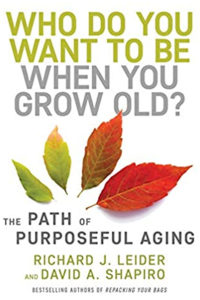
Who Do You Want to Be When You Grow Old?: The Path of Purposeful Aging
When I developed Calling Cards, I went back and interviewed parents, siblings, teachers, etc., about someone’s gifts early in life. If I’m in an audience and I say, “How many of you have brothers and sisters?” 90% raise their hands. “Are your brother’s and sister’s gifts the same as yours?” There’s laughter in the room. They’re shaking their heads, “No, not even close.”
The next question is, “When did you start to notice?” “Early in life?” “Do you think we’re born with these?” They said, “We’re not sure but we were sure different all the way back to get-go.” What do we do with those then? We have to make a living, and we have to do all these things. Those gifts keep coming back up to the surface in midlife and later life. Oftentimes, people will say, “Now that I’ve done this, now is my time to step into what I care about and what I’m curious about.”
For me, it made a big difference to be able to have that sense of like, “I could do this. I don’t have that financial worry,” whatever worry it was that keeps people from doing that. It’s such a good feeling to explore what you love to do. I’m sure many people are going to love your book. Your work has been successful. I can see why you’ve had many sales even before the release. That’s amazing. If people want to get your book and find out more from you, how would they do that?
It’s available on Amazon, Barnes & Noble, or your independent bookstores. You can also go to my website, which is RichardLeider.com. Go to Resources, and you’ll see a whole lot of downloads that are free about the things we talked about, about how to discern your good life. There’s a good life inventory. There’s how to discern your calling and things like that are free. The book puts it all together in a successful way. The world turns on stories as you know more than anybody. It has great stories, but it also has practices. I had lunch with Matthieu Ricard, who’s the translator for the Dalai Lama. He’s done all the work on altruism. Have you had him on your show?
No. I’d love to, though.
He’s written a book on altruism, which is a purpose. He has researched this. I’m having lunch with him because I’m a senior fellow in the Center for Spirituality and Healing at the University of Minnesota, among other places. I have to introduce him to a large audience. As a senior and a senior fellow like he is, I took him to lunch and I said, “Matthieu, how do you get to be the happiest man in the world?” He smiled and said only one word, “Practice.” I said, “You got to give me more than that.”
He said, “A lot of us people from India, they measured us on all these measurements about brain waves in God helmets, oxygens, and MRIs. I was able to light up the brain pleasure center more than anybody that they’d measured. That’s why they call me the happiest man in the world. I’m not happy about it.” I said, “Why?” He said, “People will see as you have to be a monk.” He said, “It’s practice. Everybody can do it but it does require practice.” A purpose is a path and a practice. I try to teach the fact that it’s a mindset of path and practice or practices that you can get what you want. It’s not like, “I’ll think this and that’s it.” You got to show up and do it day-to-day.
That’s important. This has been such a great chat. I’m glad you were able to join me, Richard. This was so much fun. Thank you so much for being my guest.
You’re welcome. Thank you for the privilege of talking with you. I was looking forward to it.
That was fun.
—
I like to thank Richard for being my guest. I get so many great guests on the show. If you’ve missed any past episodes, you can go to DrDianeHamilton.com/blog if you want to go directly to the blog and that’ll get you to all the past shows. Anything we talk about is linked to and it’s nice. In addition to airing on the AM/FM stations and podcasts, it gives you a little different version. A lot of people like to read things and grab content and tweet it. Feel free to tweet some of the tweetable moments. We certainly had a lot from this episode. Richard was such a great guest. I was excited to have him on. I hope you enjoyed this episode. I hope you join us for the next episode of Take The Lead Radio.
Important Links:
- Inventure
- Who Do You Want to Be When You Grow Old?
- PBS Special
- Daniel Goleman – Previous episode
- Yes to Life: In Spite of Everything
- Francesca Gino – Previous episode
- Dr. Albert Bandura – Previous episode
- Man’s Search for Meaning
- Erik Weihenmayer – Previous episode
- Amazon – Who Do You Want to Be When You Grow Old?: The Path of Purposeful Aging
- Barnes & Noble – Who Do You Want to Be When You Grow Old?: The Path of Purposeful Aging
- AARP Life Reimagined Institute
- An Incomplete Manifesto For Purpose
- Work Reimagined
- Repacking Your Bags
- Life Reimagined
- Habitat for Humanity
- Whole Health Institute
- Calling Cards
- RichardLeider.com
- Center for Spirituality and Healing at the University of Minnesota
About Richard Leider
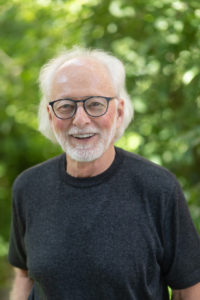 Richard Leider is the founder of Inventure – The Purpose Company, a firm created to guide individuals to live, work, and lead on purpose. He is ranked by Forbes as one of the “Top 5” most respected coaches and is a contributing author to many coaching books. He is one of a select few coaches who have been invited to work with over 100,000 leaders from over 100 organizations such as AARP, Ameriprise, Ericsson, Habitat for Humanity, Mayo Clinic, Jackson Financial, National Football League, United Health Group, Sharecare, and the U.S. Dept of State. Along the way, Richard has written eleven books, including three best sellers, which have sold over one million copies and have been translated into 20 languages. Repacking Your Bags and The Power of Purpose are considered classics in the personal growth field. His latest book, Who Do You Want to Be When You Grow Old? makes the case for a new kind of elderhood and the value of purposeful aging.
Richard Leider is the founder of Inventure – The Purpose Company, a firm created to guide individuals to live, work, and lead on purpose. He is ranked by Forbes as one of the “Top 5” most respected coaches and is a contributing author to many coaching books. He is one of a select few coaches who have been invited to work with over 100,000 leaders from over 100 organizations such as AARP, Ameriprise, Ericsson, Habitat for Humanity, Mayo Clinic, Jackson Financial, National Football League, United Health Group, Sharecare, and the U.S. Dept of State. Along the way, Richard has written eleven books, including three best sellers, which have sold over one million copies and have been translated into 20 languages. Repacking Your Bags and The Power of Purpose are considered classics in the personal growth field. His latest book, Who Do You Want to Be When You Grow Old? makes the case for a new kind of elderhood and the value of purposeful aging.
Love the show? Subscribe, rate, review, and share!
Join the Take The Lead community today:

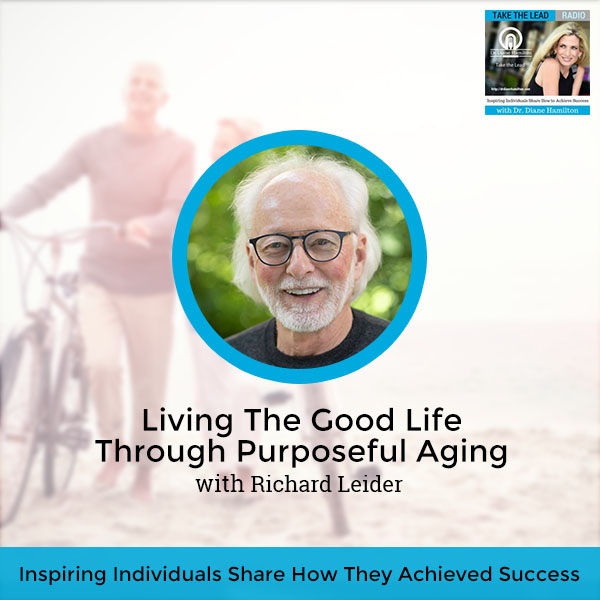

0 Comments